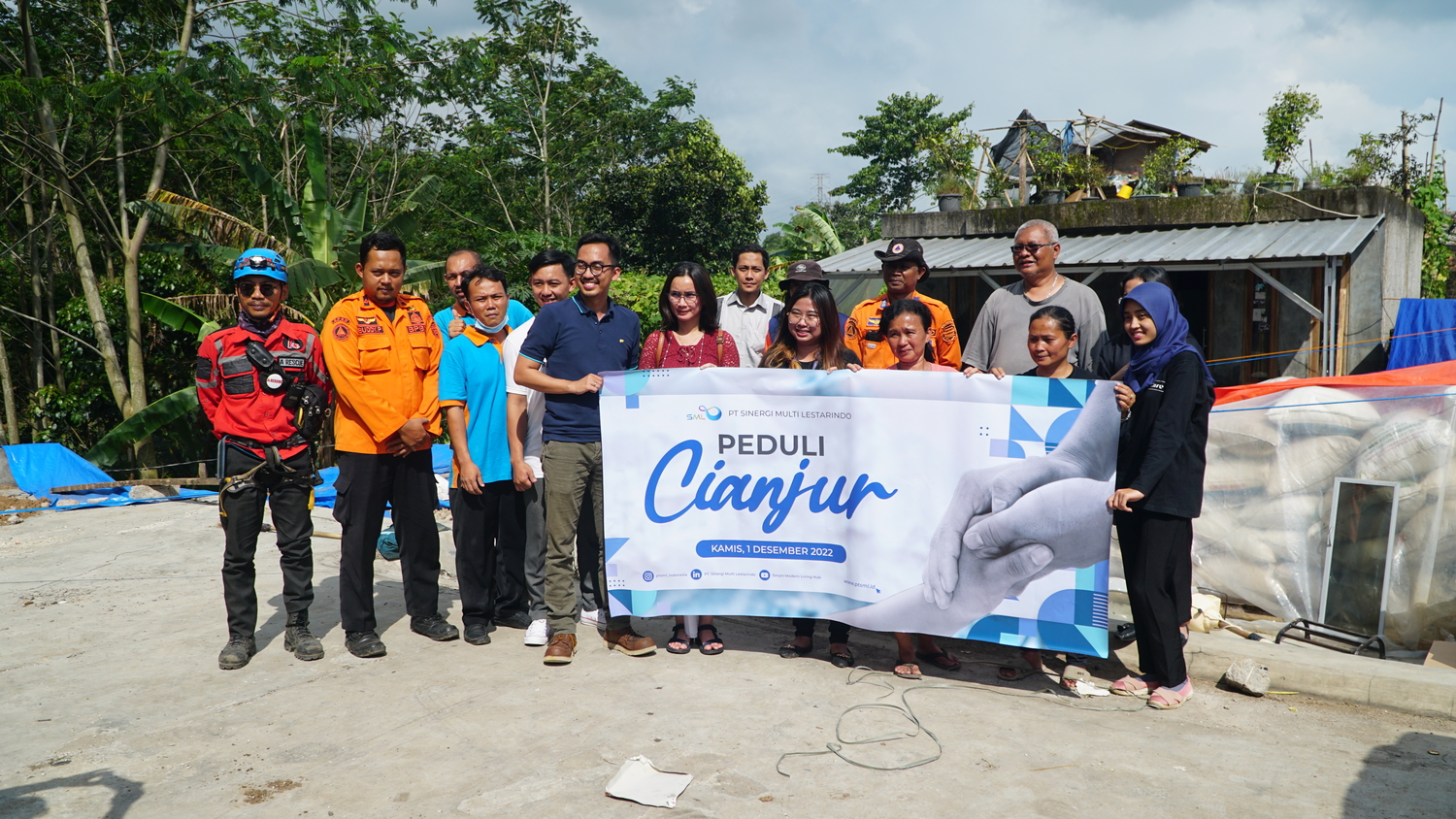Organization Structure

No Information Found
.png&w=1920&we&output=webp)
Arry W. Riansyah
Arry W. Riansyah, Indonesian, 39 years old. He has been joined PT Sinergi Multi Lestarindo in July 2022 with the position of Head of the Legal Division.
He has worked in various fields of industry and law firms with positions as Corporate Legal Officer, Human Resources Manager, Head of Legal, In House Lawyer, and Associates Lawyer. The companies include Airlines, Drilling Equipment, Sales, Logistics, Holding Management, Etc. Before joining PT Sinergi Multi Lestarindo, he worked as Head of Legal & In House Lawyer at PT Gobel Dharma Nusantara (Panasonic Gobel Group) and Legal Advisor at PT Gotrans Logistics International since 2017.
Obtained a Bachelor of Law degree from Andalas University, Padang, and currently pursuing a Master in Business Law at Pancasila University, Jakarta. He has completed expertise and professional certifications for the Advocate Profession Special Education Program held by The Indonesian Advocate Association in 2011, Certified Legal Auditor held by Indonesian Legal Auditor Association in 2014, and completed various training programs such as Cyber Law, Insurance, Legal Aspects of Digital Transactions, Business Contract, Etc.
No Information Found
No Information Found
No Information Found
Jamaludin, Ardi, Sukimto & Rekan
(Registered Public Accountants)
Sentra Kramat Office A11
Jalan Kramat Raya No. 7-9
Central Jakarta, 10450
Phone: +6221-3910600/ +6221 - 3910580
Fax: +6221 - 3910583
E-mail: admin@audittrust.id
No Information Found
PT Bursa Efek Indonesia
Indonesia Stock Exchange Building
Tower I, 6th Floor
Jl. Jend. Sudirman Kav. 52 - 53
Jakarta 12190, Indonesia
Tel. +62 21 515 0515
Our company regularly implements Corporate Social Responsibility (CSR) as a way to show our concern for social issues within the community. This is carried out through various social programs and activities

This is our activity when assisting earthquake victims in Cianjur
.jpeg)
This is our activity when assisting Panti Werdha Wisma Mulia
%20(1).jpeg) This is our activity when assisting Panti Asuhan Hati Bangsa
This is our activity when assisting Panti Asuhan Hati Bangsa
The fundamental risks of the company are the currency exchange rate fluctuations and reliance on suppliers, which impact production costs, profit margins, and the company's economy.
Management has reviewed and issued policies to manage each of these risks. The company implementing risk management policies will reduce the influence of market uncertainties on the company's financial performance.
Here is a summary of these risk management policies and practices:
1. Mitigating the Risk of Distribution Cooperation Sustainability between Suppliers and the Company:
- The company adopts a supplier diversification strategy by seeking alternative suppliers in different countries. By having multiple supplier options, the company can reduce its dependence on a single fundamental supplier from one country or specific region.
- The company can utilize contracts with flexibility clauses that allow for contract renewal or modification in response to market conditions or business needs. These flexibility clauses can help the company address risks if the fundamental suppliers are unable to meet the company's demands
2. Mitigating the Risk of Dependence on Salespersons:
- The company has evenly distributed tasks and responsibilities among more than 30 sales employees, ensuring that not only one or a few salespersons are solely responsible for maintaining client relationships. Thus, if one salesperson leaves, the impact is not significant.
- The company can build a centralized client database, enabling all salespersons and relevant staff to access client information. It can help minimize the risk of losing client information when a salesperson departs from the company.
3. Mitigating the Risk of Business Competition:
- Maintaining a focus on product quality and provided services.
- Developing effective market penetration strategies to retain market share and attract new customers.
- Enhancing operational efficiency and reducing production costs to maintain competitive product pricing.
- Developing innovative products and services that differentiate from competitors
4. Mitigating the Risk of Market Demand Changes:
- Conducting market research and regular customer surveys to understand market trends and customer needs.
- Maintaining flexibility in the product and service portfolio to quickly adapt to changing market trends and customer demands.
- Develop effective marketing strategies to retain existing customers and attract new ones.
5. Mitigating the Risk of Supply and Market Price Fluctuations:
- Establishing long-term contractual agreements with raw material suppliers to avoid short-term price fluctuations.Maintaining an adequate stock of raw materials to reduce the impact of market price fluctuations.
- Diversifying the product portfolio to reduce dependence on a single type of raw material or supplier
No Information Found
Download here: SMLE Interest Assistance Guidelines